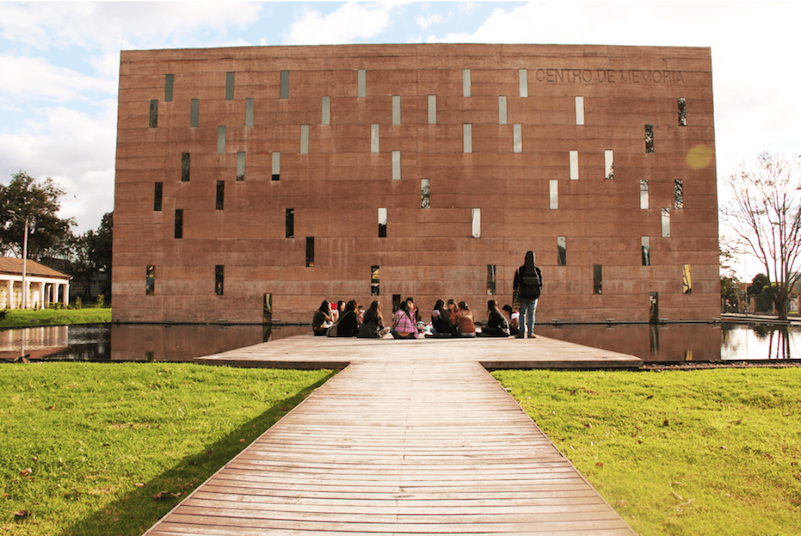The construction of peace in Colombia has not been easy. Although the Peace Accord was signed in 2016 by the guerrilla organization, Fuerzas Armadas Revolucionarias de Colombia (FARC), different events have hindered the country’s progress towards pacification and stabilization.
In April 2018, the former guerrilla member and FARC negotiator Jesús Santrich, who had entered political life, was captured under charges of continued drug trafficking activities. This arrest generated a political struggle between the Attorney General, the Special Jurisdiction for Peace (JEP), and the Supreme Court. Currently, Santrich is at large. There is now a search warrant for him issued by Interpol and he is presumably hiding in Venezuela. Santrich is a loose cannon and his current state of liberation impacts former combatants who want to reincorporate themselves into society.
Another serious setback occurred in January 2019 when the Ejército de Liberación Nacional (ELN), a guerrilla group that was undergoing peace negotiations with the Colombian government in Havana, Cuba at the time, perpetrated a terrorist attack against a police educational center. 21 died and 60 were wounded. After this act of violence, the peace talks were terminated and negotiations were deadlocked. This event also elicited harsh criticism from Colombian society, the UN and the international community.
A Historical Overview
Conflict has been a constant for Colombia throughout the country’s history. At the beginning of the 19th Century (more specifically 1812-1814), the divide was evident between the Centralist and Federalist parties, and during the 20th Century between the Liberal and Conservative parties. The Liberal and Conservative parties were especially divided during a period now known as La Violencia (1948-1958). La Violencia was sparked by the death of the liberal leader Jorge Eliécer Gaitán and caused approximately 200,000 fatalities in total.
The control of fertile and productive lands has been a major point of conflict throughout history. It has resulted in a historic diaspora of displaced people who are forced to move to enlarging marginalized peripheries of Bogotá and other main cities.
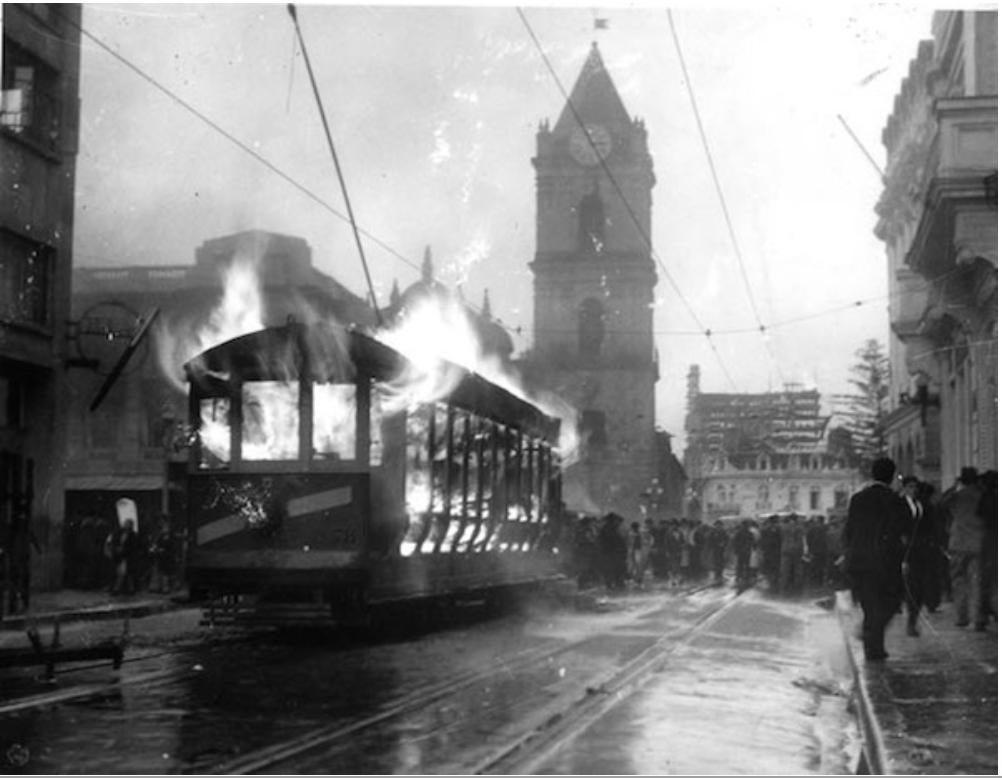
Source: https://www.senalcolombia.tv/general/memorias-del-bogotazo
With the goal of ending the political violence, the two traditional parties entered an agreement referred to as Frente Nacional (1958-1974), which established the alternation of power between them for four-year periods. This was a centralized agreement that excluded other political options, thus facilitating the ascent of insurgent groups such as the FARC, which would exchange its Cuban Revolution-inspired ideals for drug trafficking in order to buy weapons and strengthen their military power.
At the beginning of the 1980’s, drug traffickers and insurgents crossed ideological lines and became powerful drug cartels (Medellín and Cali) for narco-terrorists. The guerrillas’ extortive practices drove the emergence of private armies that soon got out of control, generating human rights chaos in vast rural areas and even in specific areas of cities.
In the 90’s, the State partially lost control of extensive territories to these cartels. President Ernesto Samper was investigated (Process 8000) for presumably financing his presidential campaign with drug money, and although he was never ousted from power, his legitimacy was lost along with his internal and external political influence. The country’s image was now one of insurgent violence. Drug cartels had infiltrated politics, sports, and other sectors of society, thus leading to a crisis of values that would affect future generations.
Andrés Pastrana, the next president of Colombia, undertook a very complex negotiation with the FARC to whom his government assigned an area of 42,000 km2 (1998-2002) in what would become a failed attempt at a negotiated peace. After this failure, Pastrana negotiated an aid package with the United States of America, known as Plan Colombia, which would be capitalized upon by his successor in power, Álvaro Uribe.
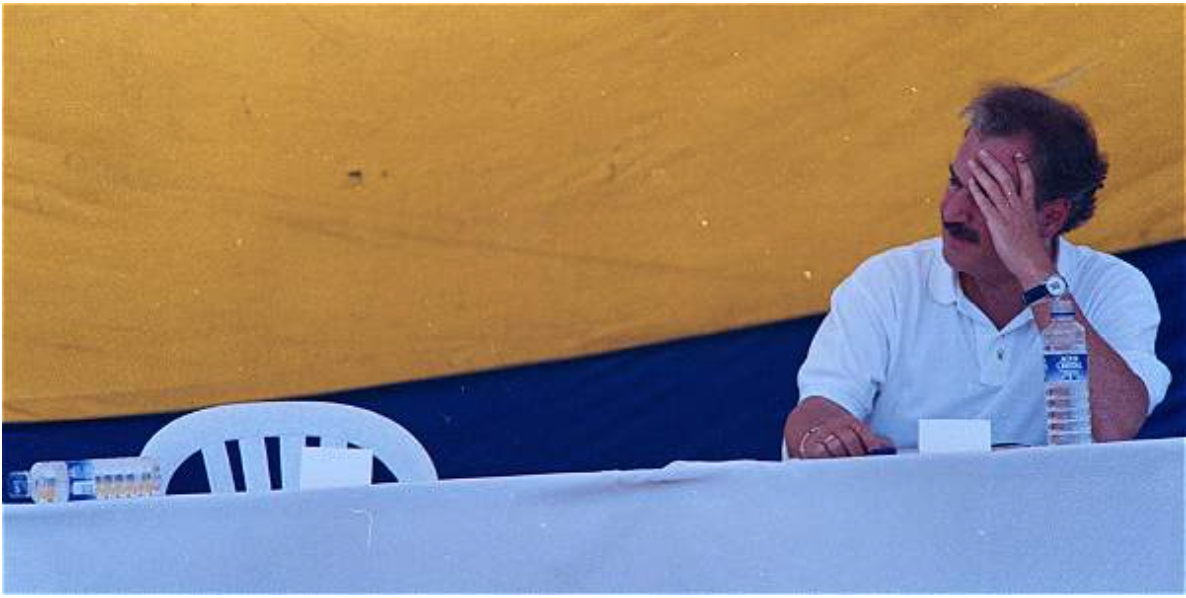
Source: http://images.et.eltiempo.digital/politica/proceso-de-paz/silla-vacia-victor-g-ricardo-sabia-que-marulanda-iba-a-dejar-plantado-a-pastrana/14656715
During the two presidential terms of Álvaro Uribe (2002-2010), the State recovered its strength, succeeded in debilitating insurgent groups, retook control of strategic corridors, and improved security in the cities. The military forces became stronger with resources from Washington.
However, human rights abuses were confirmed during this irregular conflict, which debilitated the image of the country in the international arena. But, despite being on the verge of collapse, the country transformed itself. From almost being declared a failed state, a frank economic recovery was clearly underway with the help of direct foreign investment and the social imaginary of a possible and viable country. Although, the government was still not able to control kidnapping, drugs and weapon trafficking along the borders, and the presence of thousands of refugees fleeing war.
Editor’s Picks — Related Articles:
Youth, a Not-So-Secret Formula for Peace
Containing Migration is a Mistake
Defending the Planet in the Era of Humans
A Complex Pathway to Peace
The administration of Juan Manuel Santos (2010-2018) reflects Colombia’s strengths and weaknesses as well as its capacity for forgiveness and reconciliation, but it also portrays the country’s self-destructive power. A negotiation process was initiated in 2012 with the FARC in Havana and ended in a complex manner in 2016.
Since then, difficulties have not ceased. Colombian society is seemingly divided between those who want peace to prevail, and those who seek to revise and change the Peace Accord. Albeit, it is true that healing takes time and that this is a social and pedagogic process that needs to transform the mindsets of current and future generations of Colombians. As to the international agenda, the country was admitted to both the OECD and NATO as a global associate.
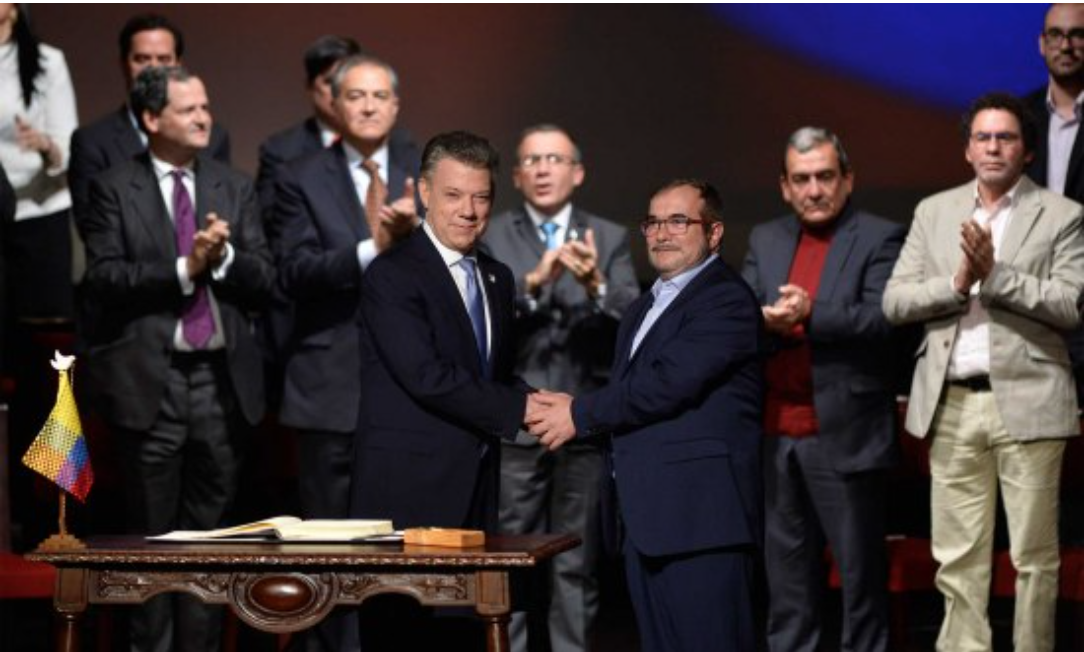
Source: http://proyectos.banrepcultural.org/proyecto-paz/firma-nuevo-acuerdo-de-paz-en-el-teatro-colon
However, during this stage of the country’s peace process, a harsh reality concerning the drug problem has become apparent. The 68,000-hectare area that was cultivated with coca bushes back in 2009 grew to 172,000 hectares in 2017, thus confirming the socioeconomic difficulties still prevalent in the country.
In November 2016, the Peace Accord was signed between the government of Juan Manuel Santos and the FARC. In theory, this meant the end of a fifty years plus conflict that had caused more than 220,000 deaths. It seemed incredible that the conflict was over after the referendum to ratify the Peace Accord had been rejected just the month before by an ample sector of Colombians, which had caused the whole country, its leadership, and the international community to falter.
Amidst such complex circumstances, Santos was awarded the Nobel Peace Prize which pushed the opposition led by former president Álvaro Uribe to try and adjust the agreement before executing it on November 24 of that year.
Despite this historic triumph, Ivan Duque won the presidential election of 2018, with a political group that disagrees with some points of the Peace Accord. President Duque attempted unsuccessfully to object the Special Peace Jurisdiction (JEP), a justice system that seeks truth, victims’ reparations, and avoidance of repetition of actions against them.
However, the government, through the Presidential Council for Stabilization and Consolidation, has continued developing projects to implement the Peace Accord. These include economic projects for the reincorporation of former combatants who have been recognized by the UN Verification Mission in Colombia. Similarly, the Office of the High Commissioner for Peace makes efforts to protect social leaders, who have become the target of violent actors that attempt to destabilize the fragile process of reconciliation in the country.
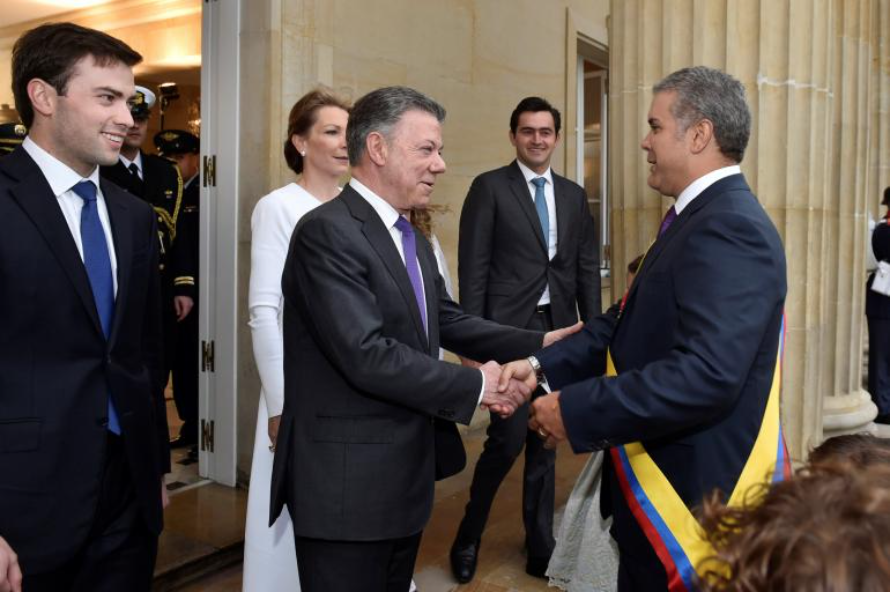
Source: https://www.eltiempo.com/politica/gobierno/las-diferencias-entre-los-discursos-presidenciales-de-duque-y-santos-253114
The foregoing leads us to two major conclusions. First, that the Colombian conflict is a complex one, with political, economic and socials overtones. Second, it is rather heroic for a country to survive all these adversities. It is worth remembering that this is a special country with great potential. Furthermore, it has a privileged geographic location, with a variety of thermal strata, plenty of natural resources and extensive coastlines in both the Atlantic and Pacific Oceans; an environment that results in its being the second most biodiverse country of the planet. Additionally, Colombia holds a big chunk of the Amazonian rainforest and many other hydrographic basins, and houses a rich and provocative mixture of cultures.
All these factors could facilitate the formulation of an assertive foreign policy in a region that experiences radical right governments and the Venezuelan crisis. Maybe this is the moment for the new generations that are now more educated and critical in their political thought to take charge so that someday, they will be able to live in peace.


